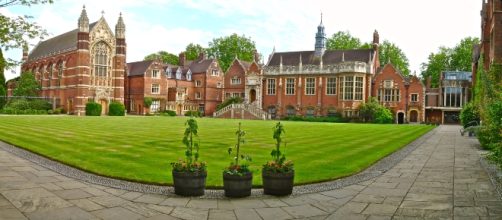The rocketing of tuition fees to £9000 combined with a 300% increase in the number of 1st and 2:1 degrees has cultivated an atmosphere of indifference. With students agreeing to over £40,000 worth of feesto pay off through their 20s at the expense of a university degree, the importance of receiving a high class is heightened. Job prospects, payment packages, and even the location you work can entirely depend on this success.
Students as customers.
The act of paying money to an institution in exchange for knowledge puts a price on education. The scrapping of student grants for poorer students, the prospect of universities raising fees in the near future, and the aftermath of Brexit which has left the position of European student (of which there are 132,000) enrolled in British institutions teetering and uncertain, has put an even higher cost on degrees.
Degrees no longer automatically guarantee better financial prospects. With almost 500,000 students embarking upon full time higher education courses per year, the job market is flooded with overqualified individuals. Having a 2:1, or even a 1st, really does make a difference: five years after graduation, those with a 2:1 or higher can expect wages 7-9% higher than those with lower class degrees. This could be the difference between an extra few years of loan repayment, something which can affect an individuals ability to get on the property ladder, travel the world, or even start a family.
Students deserve a good degree.
With this kept in mind, comes the somewhat dangerous idea that students are automatically entitled to a good degree.
In exchanging money for education, it is impossible to deny that education is now a service. Generally in society, when you pay for a service, you are guaranteed a positive outcome in return: expensive electrical products come with a warranty, travel services offer compensation for delayed flights, most high profile businesses have complaints and compensation procedures in place for when a good or service does not have the outcome desired and expected. By making higher education a capitalist process, surely the same procedures should apply?
Above and beyond contact hours?
Different courses promise varied contact hours. According to Unistats, an English student spends only 12% of their time with a member of staff, compared with 32% for a Physics student.
Both students would pay the same feesto study at an institution, causing issues about entitlement. To what extent are students are entitled to equal contact hours? Should an arts student have the right to demand extra hours with lecturers outside of office hours in order to compensate? Students have the ability to rate their university in an informal manner, but to what extent are they able to demand significant changes to education as a commodity?
The Crisis of Curiosity.
Higher Education is currently in a state of inertia. Lecturers and students alike are taking to journalism to discuss the issues of entitlement to a particular class of degree, and this is an issue that will clearly never be solved.
As long as students pay exorbitant amounts for their education, they will in some manner see themselves as customers, which will inevitably affect their perception of education.Perhaps the traditional perception of higher education is overly romanticised. The Socratic method of in depth discussion of topics with an expert has died in UK universities (save for Oxbridge), and the need educate simply for the sake of spreading knowledgehas died with it. The demands of society have inevitably triggered this; everything must have a purpose; the purpose of furthering your career, the purpose of increasing your financial worth, the purpose of allowing yourself security in later life. However, even to some extent, education should have the prospect of allowing for intellectual curiosity and the pursuit of knowledge for knowledge's sake.

